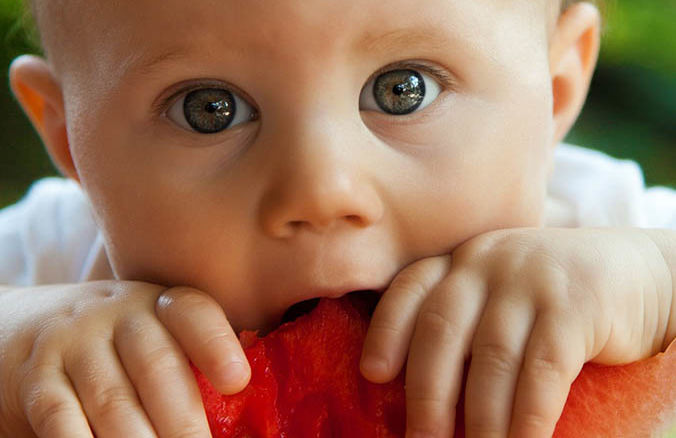Caring for your baby at the earliest stages of life after birth is an exciting period of rapid growth and development. One major developmental milestone parents like you are usually on the lookout for is when you can start introducing solid foods into your baby’s diet.
Many medical professionals agree that breastmilk (and/or milk products) is sufficient to supply a baby’s nutritional requirements for the first six months and that it is safe to start solid food introduction after the six-month mark.

However, knowing the right timing is just the beginning. Other common feeding concerns parents have during this phase and throughout childhood include:
● Baby refusing food altogether
● Tummy Troubles
● Picky eating
● A disrupted feeding schedule
● Health complications like diarrhea or adverse allergic reactions.
Worried about doing it alone without professional guidance? Then you’re in the right place. Provided here are some helpful tips to get you confidently feeding your baby in no time.
1. Check if your baby is ready for solid food
How do you know when your baby is ready to transition from full-time milk feeding to solid foods? There are signs you need to be on the lookout for:
● A growing appetite indicates your baby is on a growth spurt so feeding times are more closely clustered together. Your baby’s birth weight may have already doubled at this stage as well.
● Your baby can already keep his/her head in a steady, upright position.
● Your baby can already sit comfortably with some support.
● The “extrusion reflex” eventually disappears. You will notice this the first time you try to feed your baby, and he/she inadvertently pushes out some of the food. This reflex will eventually disappear the more solid food your baby is exposed to at greater frequency.
● Your baby begins to show interest in what you are eating.

2. Begin with the basics
Keep in mind that your baby has only been feeding on liquids for the first few months of his/her life, and introducing anything new to your baby’s diet must be done gradually. You may begin by preparing single-ingredient food with no salt or sugar.
Be on the lookout for any adverse reactions or changes in the stool. If all goes well, space solid food feeding three to five days in between. You may start with runny baby cereal using breastmilk to keep it free from lumps. Give your baby tiny spoonfuls of the mixture and see how he/she reacts. While introducing solid food to your baby’s diet, keep in mind that milk feeding should continue.
3. Mix it up gradually
If you want to start off your baby on cereals, keep a healthy variation of barley, oatmeal, and rice. You can then gradually introduce pureed vegetables and fruits to your baby’s diet as he/she adapts to solid food.
Some pediatric experts suggest introducing meat to breastfed babies as a first food because of the high iron content in beef, chicken, and turkey. Other excellent first solid food options include carrots, peas, sweet potatoes, squash, applesauce, bananas, peaches, and pears.

4. What not to feed your baby
Do not attempt to feed your baby honey and cow’s milk before age one. Cow’s milk can increase the risk of iron deficiency especially in breastfed babies, and honey is a known source of the spores of a bacteria which causes infant botulism, a rare but fatal illness.
Avoid feeding your baby any food that poses a choking hazard such as nuts and seeds, popcorn, chunks of cheese, corn bits and the like. Processed food is also a no-no, as well as high-risk food like marshmallows and peanut butter.
If your family has a history of allergies, then you should have a list of known allergens on hand and not feed them to your baby.
Introducing solid food into your baby’s diet is a stage of trial and error. With a little guidance from trusted nutrition advisors and some gentle prodding from you, your baby should be ready to embark on a new nutritional journey at this stage in life. Should your baby refuse solid food on the first attempt, don’t feel frustrated. Try again after a week, and always be patient.



